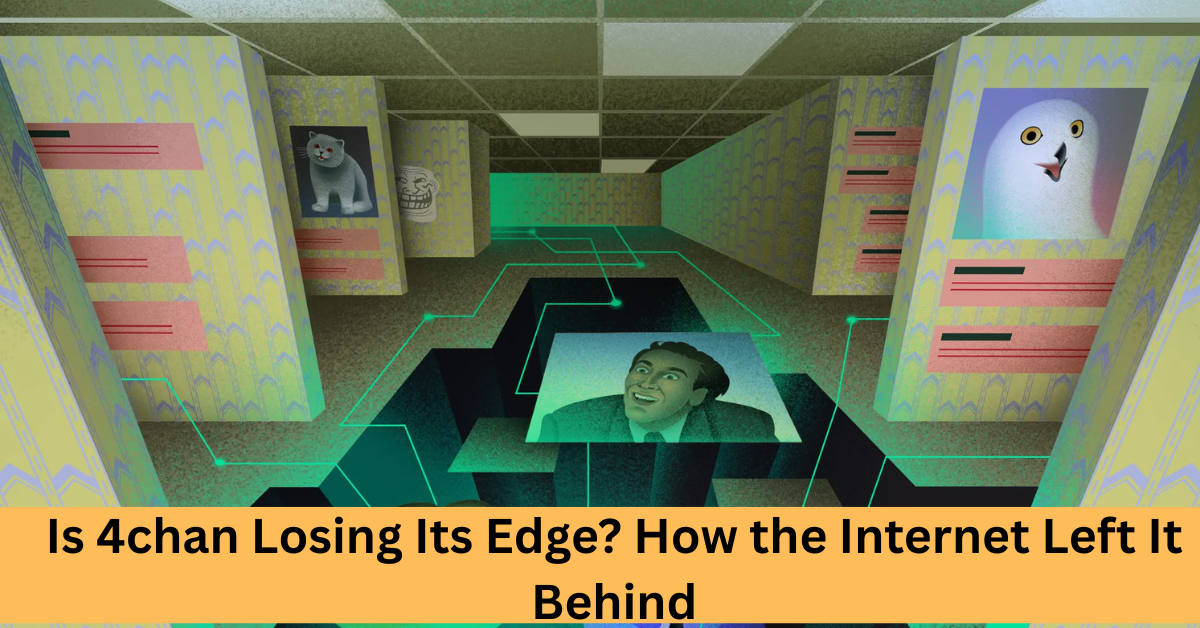Once the chaotic heart of online culture, 4chan is now just a shadow of its former self. Back in 2003, when the internet still felt like a strange, exciting place, a teenager named Christopher Poole (better known as Moot) launched 4chan—a message board that let people post anything they wanted without revealing their identity. Modeled after the Japanese forum 2channel, 4chan quickly became a digital underground filled with edgy jokes, memes, NSFW content, and internet experiments.
At the time, social media was either non-existent or still finding its feet. But 4chan? It was wild. There were no likes, no followers—just raw, anonymous posting. If a post didn’t get replies, it disappeared fast. If it caught attention, it could start a trend. Trolls, meme creators, and internet misfits gathered there, making it one of the most unpredictable places on the web.
For many teens in the early 2000s, visiting 4chan felt like peeking into a secret part of the internet. You’d try to access it on school computers only to find it blocked. That alone gave the site a kind of forbidden allure. It was an internet playground with no adult supervision.
The Rise and Fall of 4chan
4chan’s influence on internet culture can’t be overstated. Many of the internet’s most popular memes, slang words (like “lulz,” “troll,” “fren”), and shock trends originated here. It also helped birth internet movements like Anonymous, and was the testing ground for meme formats we still see today.
But as time passed, the internet moved on.
Social media platforms like Facebook, Reddit, Twitter (now X), and TikTok gave users faster, shinier, and more “mainstream” ways to post memes and jokes. Slowly, 4chan became less relevant. In 2015, Poole sold the site to the owner of 2channel, the very forum that had once inspired it.
In April 2025, the site vanished suddenly after a group of hackers, from an even darker forum called Soyjak. party, claimed responsibility for taking it down. They not only removed 4chan from the internet but also leaked its source code and moderator details, exposing how outdated the site’s infrastructure had become.
After nearly two weeks, 4chan returned. But it wasn’t the same.
A Basement on the Internet
Today, 4chan feels like a time capsule—a basement where the lights still flicker but nobody really hangs out anymore. While it once shocked the internet with its radical and controversial content, that shock factor has been diluted.
Why? Because the internet caught up.
Now, you can find 4chan-style content on X (formerly Twitter), Truth Social (Trump’s platform), Parler, Kiwi Farms, and many others. In fact, many of these platforms have fewer restrictions than 4chan ever had. Jared Holt, a researcher of online extremism, noted that 4chan has been “outflanked to the right.” In simpler terms, even more extreme platforms have taken its place.
4chan’s Lasting Impact on Meme Culture
Despite its fall in popularity, 4chan’s legacy still shapes how we use the internet today. From meme formats to trolling styles, the influence is everywhere.
Cole Stryker, an expert on digital culture, called 4chan’s vibe “nonstop playful misanthropy.” It was all about being rude, funny, shocking—and doing it fast. This culture of clapbacks, burns, and savage memes? 4chan was doing it before it was cool.
Now, even politicians and governments have entered the meme game. The White House’s official account has posted AI-generated memes with dark humor. That would’ve been unthinkable a decade ago—but it shows how far 4chan’s influence has spread.
New Hiding Spots for Digital Extremism
After the April hack, 4chan admitted in a blog post that it hadn’t updated its servers in a long time and lacked the resources to protect itself. The post boldly claimed: “4chan is back. No other website can replace it, or this community.” But let’s be honest—things have changed.
Today, the most harmful online behavior doesn’t even need public forums like 4chan. Apps like Discord, Telegram, and Signal now host group chats where users discuss extreme ideologies, plan illegal activities, or share dangerous memes—all in private, encrypted settings.
Journalist Ben Smith recently revealed that elite group chats involving political figures, tech billionaires, and media people also follow the 4chan tradition. These groups, with names like “Last Men, apparently,” joke about race, identity politics, and global events. As venture capitalist Marc Andreessen put it, group chats are now about “getting as close to the line of being actually objectionable without tripping it.”
In short, the spirit of 4chan has spread like a virus. Even if the website disappears again, its tone—edgy, irreverent, often cruel—will still echo across the internet.
Final Thoughts: 4chan’s Shadow Still Looms
4chan may not be the internet powerhouse it once was. It may no longer shock people the way it used to. But its impact is permanent. It taught the world how to meme, how to troll, and how to be anonymous and loud at the same time.
It showed us the dark potential of the internet—and we’ve been dealing with that ever since.
Whether it survives or dies out, one thing is clear: 4chan changed the internet. And even now, in every group chat or trolling post we see today, there’s a little piece of 4chan living on.

Deepak Grover is a dedicated content writer at OTE News, specializing in government affairs, public policy, and current events. With a keen eye for detail and a passion for factual reporting, he ensures readers receive accurate and insightful news. Deepak holds a degree in Political Science and has experience in research-driven journalism.
When not writing, he enjoys reading historical books, exploring hiking trails, and staying updated with global political trends. His commitment to ethical journalism makes him a trusted voice at OTE News.




